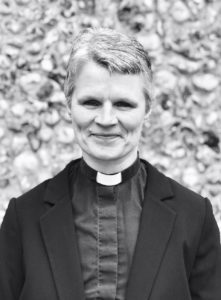St. Augustine’s isn’t merely a place of theological education and learning; learning is set within a community of Christian formation in which students and staff are formed also through prayer and worship, which are essential dimensions of college life alongside theological education. It is no accident that the college is physically rooted within the grounds of a Benedictine abbey – a community whose very work is prayer.
The college has been making use of technology in its teaching for some time. Teaching sessions have been streamed live and then recorded and put on the college YouTube channel to enable distance learning. Lecturer’s skills in this area have been honed through practice and in the light of experience. The lockdown resulting from the Coronavirus pandemic has enabled the college to develop its online presence further. Almost before lecturers got to grips with transferring all teaching online, the college Facebook account was used to enable students and staff to pray together. Morning Prayer and Evening Prayer were later joined in the daily schedule by Compline.
It’s sometimes said that ‘a family that prays together, stays together’. Sometimes non-residential training institutions are criticised for not having this foundation of daily prayer at their heart, but recent experience has shown the opposite. Significant numbers of students and staff have been participating in our online worship and most of the offices are student led. Learning to lead online worship will inevitably become an important part of training for a variety of ministries in the future and a question for the college to consider will be what – if any – of these online services might continue when lockdown ends.
However, the primary motivation for online services hasn’t been for the students to gain experience and so be able to tick another ministerial task off on the list. Rather the motivation comes from the desire to be united together in prayer, even when they can’t be physically together. I’ve been leading Morning Prayer for the college once a week during lockdown and have been very aware from the messages that pop up how much students see this form of worship as a means of ongoing engagement and prayerful support for one another.
Anyone who’s on Facebook will notice how many Christians and churches have been rediscovering the daily office, one of the most ancient Christian forms of worship. Based on the frequent New Testament injunction to ‘pray without ceasing’, it consists of services (offices) spread through the day to punctuate it with times of prayer and praise. It’s a form of worship that doesn’t require lots of liturgical objects or the leadership of the clergy. It can be said in church or in your armchair at home. The psalms form the heart of the daily office and speak powerfully into our current time with the diverse emotions they express. Perhaps most importantly for the college now, the daily office is a corporate form of prayer, even when said alone. It doesn’t replace our ‘normal’ worship and it’s clear that whilst there’s joy for staff and students seeing one another virtually and in praying together, there’s a clear sense also of loss at the current physical separation.
The online worship hasn’t been just for the current students and staff. Whenever Christians worship, they are of course joining in the worship of the whole church, in heaven and earth. Specifically, several past students have been joining in the worship and the services have also been reaching a wider ‘audience’ who might not have previously even heard of the college. Non-residential theological colleges tend to have a role in their geographical region and, alongside an expansion in different sorts of courses and opportunities to explore and grow in theological knowledge and understanding, this ‘open-access’ worship has been a new and different way of engaging with more people.
We don’t yet know when life will get back to normal or whether we’ll have to get used to a ‘new normal’, which includes some form of social distancing and times when we can’t worship in our church buildings in the way we might want to. I can’t help feeling that the live streaming of worship will have a continued place in the worshipping life and training offered at St. Augustine’s for the foreseeable future.
The Revd Canon Rebecca Swyer
Trustee and Chair of the Board of Studies


